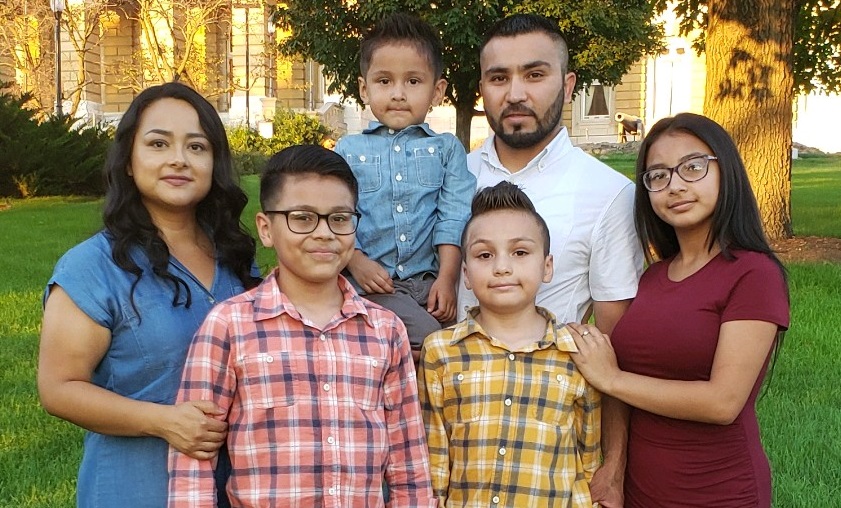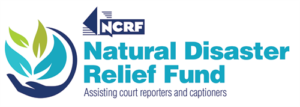Student Spotlight: Zoila Chamale

The traditional court reporting student is anything but traditional. Many of them are switching careers, have already earned degrees in other subjects, have taken time off to raise families, or are facing other unique challenges. Zoila Chamale is no different. As a native Spanish speaker, she had one more hurdle to climb. But Chamale is relentlessly positive. “I am always learning something new about the English language. I am up to the challenge of learning new words,” she says. Up to Speed interviewed Chamale about her court reporting experience.
UTS | What kinds of challenges have you faced during your court reporting program?
ZC | Well, it is not easy being a wife and mom of four and deciding to go back to school. I cannot just go home after class and take a nap after a tough test/take because I have people to feed and hugs and kisses to give. However, my family is also my greatest motivator. I do not do what I do just for myself. I have four little people and my hubby who are cheering me on.
Spanish is my first language, which comes in handy sometimes since Latin can be very similar to Spanish, although it is hard to write when a Spanish translator is being used because it’s hard for me to not write what the Spanish-speaking person is saying because I’m translating it in my mind.
UTS | How did you first get interested in court reporting?
ZC | I was first introduced to court reporting when a court reporter came to talk about our great profession to my English class in high school. I had always wanted to be a computer engineer, but that plan quickly fell through when I discovered how much math was involved in engineering.
Many people do not completely know what court reporting is all about. I think it is important to share our profession with everyone, old and young. Many times, when I tell others what I do, they say, “So you type what the judge says, right?” Then they are mesmerized when I let them know that I type every single word that is said in the courtroom.
UTS | Can you talk a little about your background? Did you start the program straight out of high school, or did you have another career first?
ZC | I went to court reporting school at AIB College of Business in Des Moines, Iowa, straight out of high school. I was a non-traditional student because I got married soon after starting college. My oldest daughter was a preemie, so I took some time off school to be at home with her. Long story short, five years and three kids later, I graduated from court reporting school. It was definitely not smooth sailing, but I persevered.
After graduating, I wanted to work at the Polk County Courthouse downtown because our family was well established in Des Moines, Iowa. I felt that I needed a more structured work schedule and felt that the benefits of being a state employee were great. Sadly, there were no job openings at the courthouse (there were in freelance and captioning). So as a family we decided that I would take on the very important role of a stay-at-home mom and have the blessing of raising my kids at home.
Another seven years later and one child later, I decided that my kids were old enough and it was time for momma to get back to her dream of working as a court reporter. I enrolled in the summer semester at Des Moines Community College in Newton, Iowa. It was scary because after being off of my machine for so long, I did not know how my speed and theory were going to come back to me. I was a little rusty, to say the least.
I skipped the theory classes and went straight to the first speed class. After countless hours of lab practice each week, outside of my regular class practice, and transcribing almost every single test that was given to me (you cannot pass unless you transcribe!), I went through all the speed classes in two semesters. Hard work and dedication pay off!
After going through court reporting school for the second time, I just did not wait for a job to be available at the courthouse. I took it upon myself to “pretend” I had a job at the courthouse by job shadowing every workday. By doing that, I was able to know how the court system works, knew almost all of the court reporters and some staff at the courthouse, and got more familiar with the legal language even before I started to work there. I was determined to get my face out there and let everyone know I really wanted to work there.
UTS | If you were to go to a high school career fair to recruit students, what would you say to them about a career in court reporting and captioning?
ZC | Court reporters and captioners are in high demand. Our profession is booming with opportunities and can take you to places you never imagined. You hear something different every day. You just never know what your day is going to entail. You have a great paying job that is also an integral part of our justice system and helps others with disabilities.
UTS | Where do you see the profession of court reporting 10 years from now? Do you think technology will help or hurt the profession?
ZC | Ten years from now, I hope the number of court reporters will have grown. Court reporting and technological advances are intertwined. We are not an antiquated profession. Long gone are the days of going down to the library to search for an address or name. Technology has helped us be better, more efficient reporters. Court reporters are here to stay.
UTS | Where are you working now? And what is your dream job?
ZC | I am delighted to say that I’m now working at the Polk County Courthouse downtown. This has been my dream since getting out of high school. My path to getting here has been the farthest from ordinary and straightforward. It doesn’t matter what your age is or current situation, you too can get through court reporting school. If I was able to do it, you most definitely can, too!
Zoila Chamale, RPR, currently works as an official reporter in the Polk County Courthouse in Des Moines, Iowa.





